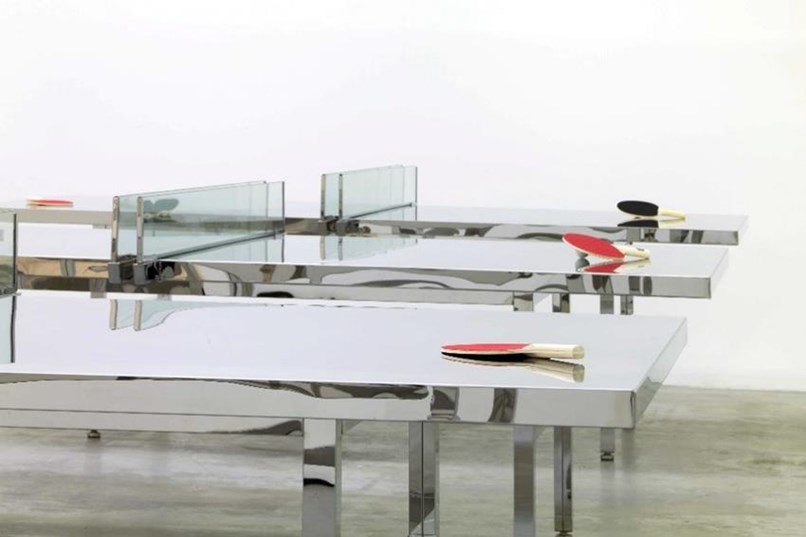ART-PRESENTATION: Rirkrit Tiravanija-Tomorrow is the Question
 Born in Buenos Aires, the Thai artist Rirkrit Tiravanija is widely recognized as one of the most influential artists of his generation. His work defies media-based description, as his practice combines traditional object making, public and private performances, teaching, and other forms of public service and social action. Winner of the 2004 Hugo Boss Prize awarded by the Guggenheim Museum, his exhibition there consisted of a pirate radio (with instructions on how to make one for yourself).
Born in Buenos Aires, the Thai artist Rirkrit Tiravanija is widely recognized as one of the most influential artists of his generation. His work defies media-based description, as his practice combines traditional object making, public and private performances, teaching, and other forms of public service and social action. Winner of the 2004 Hugo Boss Prize awarded by the Guggenheim Museum, his exhibition there consisted of a pirate radio (with instructions on how to make one for yourself).
By Efi Michalarou
Photo: Stedelijk Museum Archive
Since the ’90s, Tiravanija has aligned his artistic production with an ethic of social engagement, often inviting viewers to inhabit and activate his work. In one of his best-known series, begun with “pad thai” (1990) at the Paula Allen Gallery in New York, Tiravanija rejected traditional art objects altogether and instead cooked and served food for exhibition visitors. For his second solo exhibition in New York, held at 303 Gallery in 1992, Tiravanija filled the Gallery spaces with stacks of cultural cast-offs, rendering the space into what seemed like a storage facility, demoting the primacy of the revered art object. In 2015, the Stedelijk Museum and Holland Festival decided to intensify their partnership. Each year, they jointly commission a visual artist working at the interface of visual art and performance in order to present a freely accessible public artwork on Amsterdam’s Museumplein. For 2016, In “Tomorrow is the Question”, Rirkrit Tiravanija set up a series of stainless steel ping pong tables and invite the public to participate in his work. Tiravanija has staged exhibitions at venues throughout the world. The exhibition previously presented in Moscow, Arles, France, and elsewhere, marks the artist’s debut in Amsterdam. With his installation on the Museumplein, Tiravanija blurs once again the line between art and life. The work playfully confronts traditional ways of viewing art in classic Tiravanija style, as well as the etiquette that goes with it. As an alternative, the artist offers a more theatrical, social and more enjoyable experience. Tiravanija sees art as something artist and viewer create together, a process where people can be social beings, preferably outside the rarified realm of the gallery space. “It is not what you see that is important, but what takes place between people”. The social interaction that Tiravanija pursues with this project has different historical references, from the ping pong matches organized for a month in 1970 at a gallery in Bratislava as a way of communicating by Slovakian artist Július Koller, to the Ping Pong Diplomacy of the United States during the Cold War period. In 1971, the US organized a ping pong tournament between American and Chinese players, under the motto “Friendship First, Competition Second.”
Info: Stedelijk Museum Amsterdam, Museumplein 10, Amsterdam, Duration: 4-26/6/16, www.stedelijk.nl & www.hollandfestival.nl
